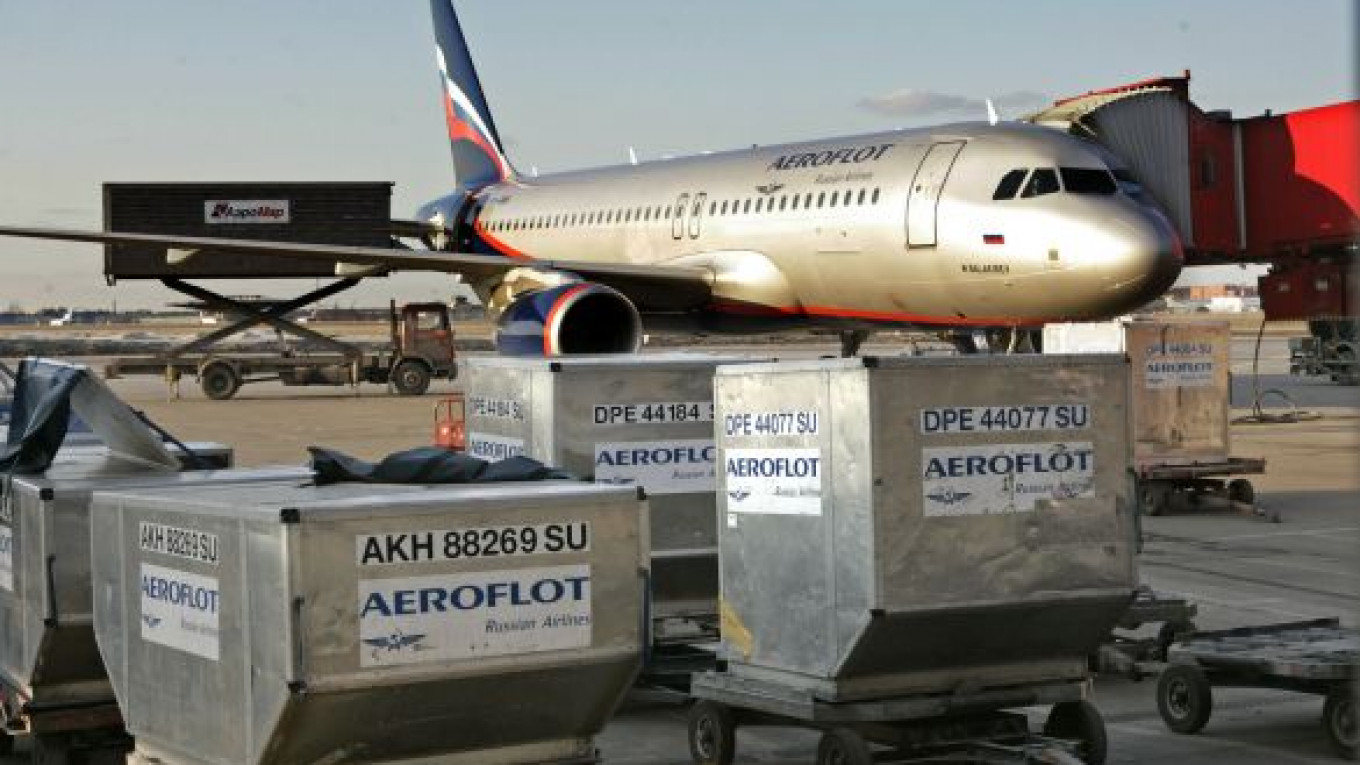Russia may prohibit its airlines from carbon-emission trading in protest against a European Union law it says is unfair, state carrier Aeroflot said Monday.
A group of nations will gather in Moscow this week to debate possible retaliation to the law, which raises the risk of a trade war by forcing all airlines to pay for their carbon emissions.
"The Russian government is now reviewing a bill prohibiting Russian airlines to participate in emission trading: It means considering a retaliatory approach," Aeroflot said on the eve of the talks.
The new law obliges global airlines to pay for emissions when using EU airports as of Jan. 1 this year, a measure it says will reduce carbon output and help protect the environment.
But the non-EU opposition, which includes India, China and the United States and is known as the "coalition of the unwilling," says the industry developments of cleaner fuel and more fuel-efficient aircraft are enough to lower emissions.
Aeroflot said the law could cost it 800 million euros ($1.05 billion) by 2025. It warned that the opposition could change its approach from "oral protestations" to "various forms of trade wars with the EU."
EU and Russian sources have indicated that no one wants the dispute to go that far, and the Transportation Ministry has said a decision should be made by the United Nation's International Civil Aviation Organization.
Aeroflot, about 53 percent owned by the Russian government, said it agreed that ideally ICAO was best placed to resolve the potential crisis.
"Aviation authorities of non-EU countries through joint efforts need to prepare an ICAO resolution with regard to the development of a global framework for greenhouse gases emissions reduction," it said.
A Message from The Moscow Times:
Dear readers,
We are facing unprecedented challenges. Russia's Prosecutor General's Office has designated The Moscow Times as an "undesirable" organization, criminalizing our work and putting our staff at risk of prosecution. This follows our earlier unjust labeling as a "foreign agent."
These actions are direct attempts to silence independent journalism in Russia. The authorities claim our work "discredits the decisions of the Russian leadership." We see things differently: we strive to provide accurate, unbiased reporting on Russia.
We, the journalists of The Moscow Times, refuse to be silenced. But to continue our work, we need your help.
Your support, no matter how small, makes a world of difference. If you can, please support us monthly starting from just $2. It's quick to set up, and every contribution makes a significant impact.
By supporting The Moscow Times, you're defending open, independent journalism in the face of repression. Thank you for standing with us.
Remind me later.






